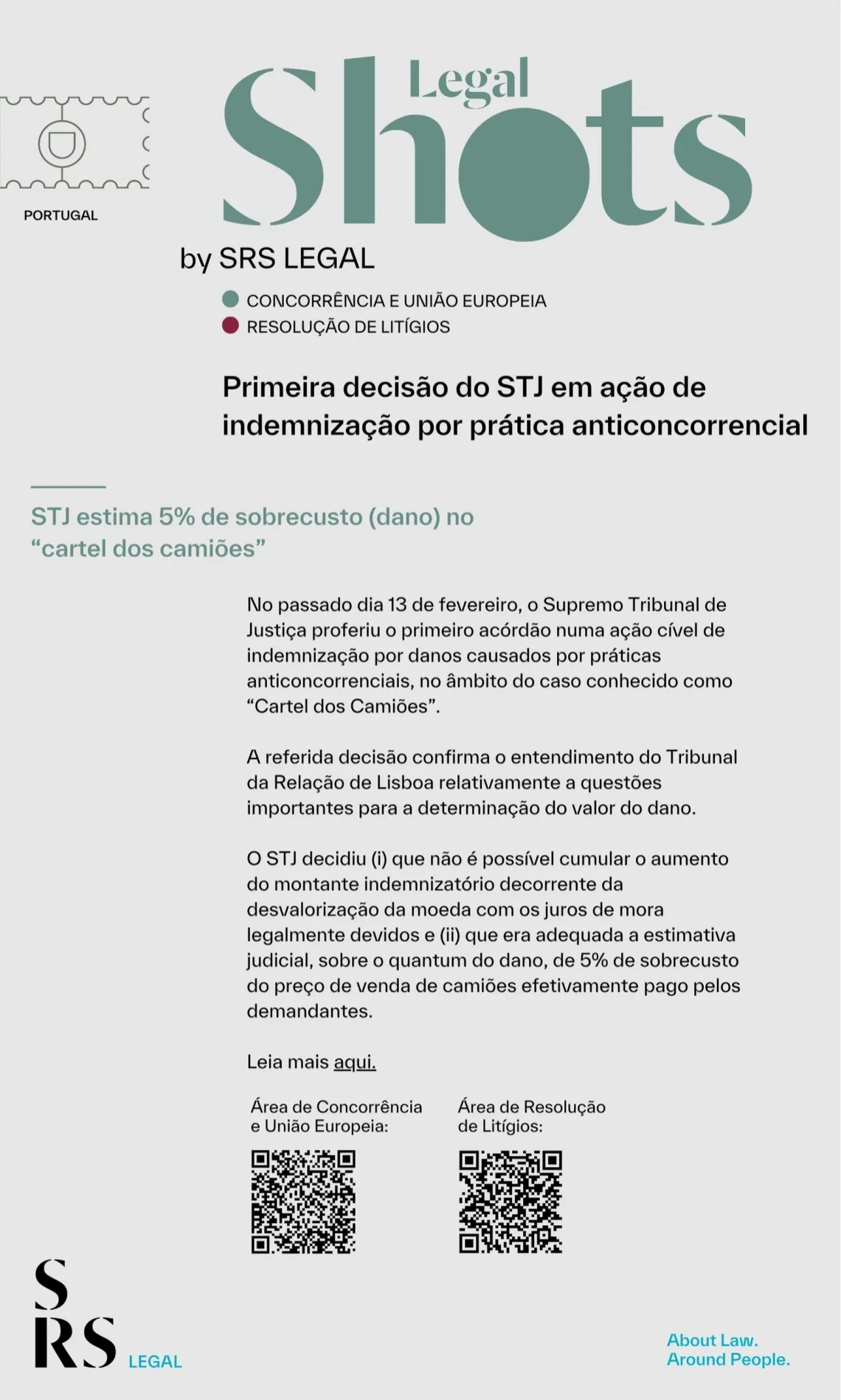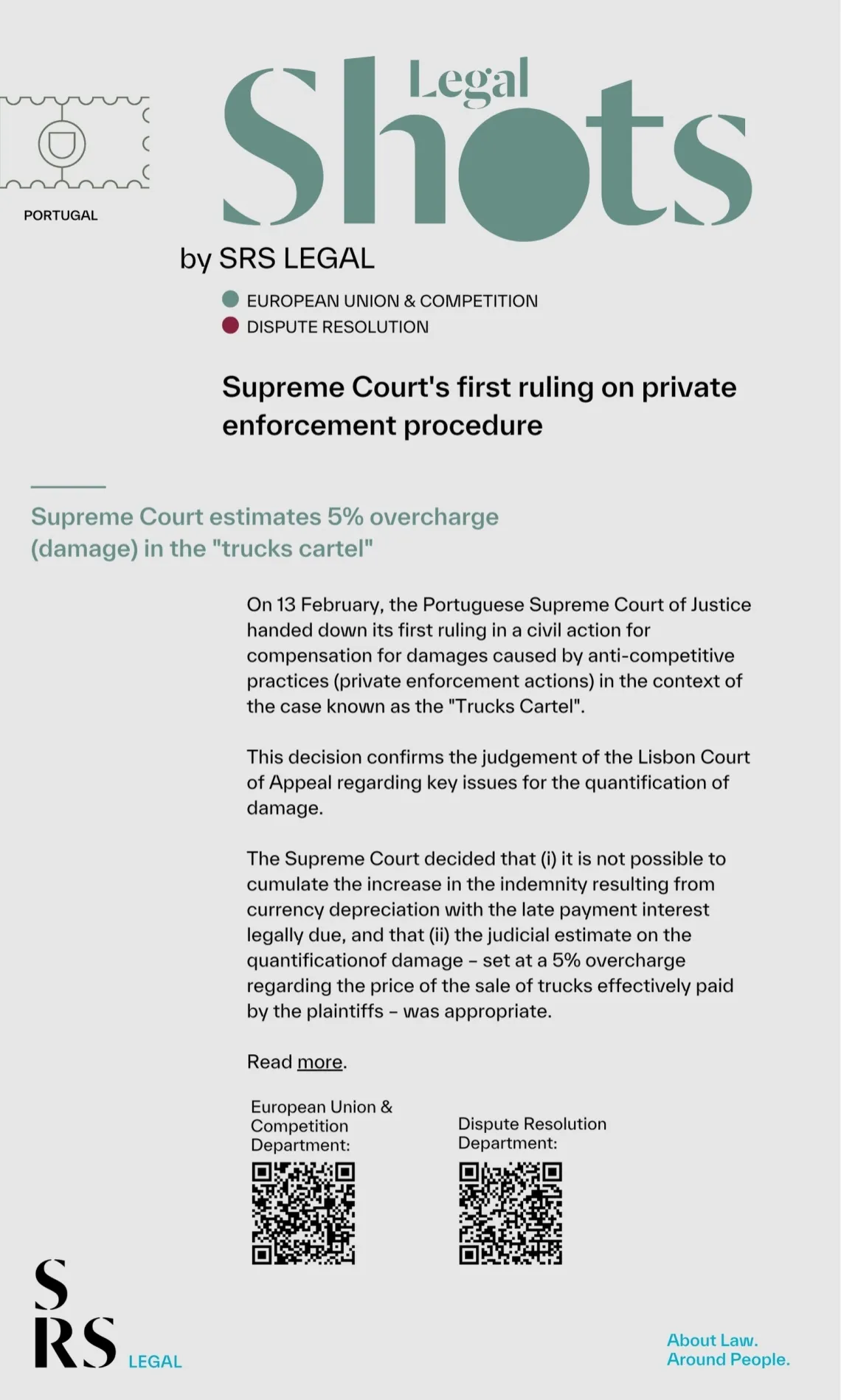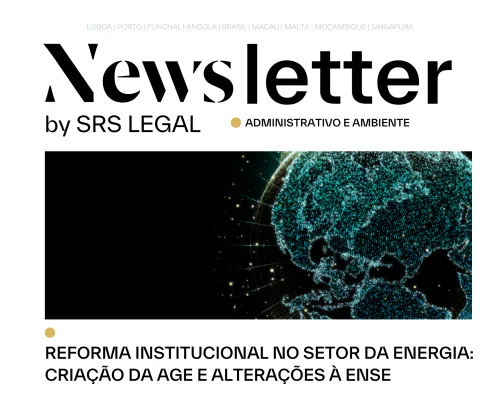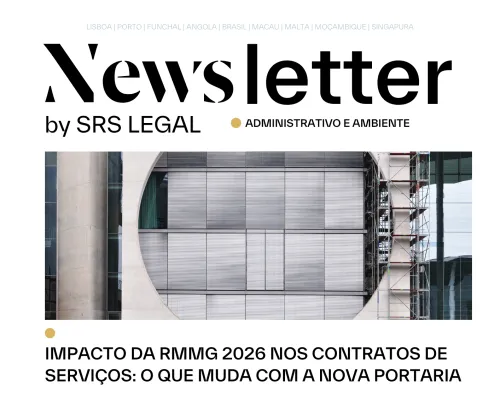Communication
SRS Legal Shots: Supreme Court's first ruling on private enforcement procedure
On 13 February 2025, the Portuguese Supreme Court of Justice (the "Supreme Court") issued its first ruling in a civil action for compensation for damages caused by anticompetitive practices, in the context of the case known as the "Trucks Cartel" (Proceeding No. 54/19.6YQSTR.L1.S1 - 2nd Section).
In 2016 and 2017, the European Commission imposed fines on several truck manufacturers (notably, MAN, Volvo/Renault, Daimler, Iveco and DAF) for participating in a cartel to coordinate prices for medium and heavy trucks and other sensitive commercial conditions, which allegedly covered the entire territory of the European Economic Area over a period of 14 years.
As a result, under the Private Enforcement Directive (Directive 2014/104/EU of the European Parliament and of the Council, of 26 November), implemented in Portugal by Law No. 23/2018 of 5 June (which regulates the right to compensation for infringements of competition law, known as the Private Enforcement Law), several Portuguese companies that had purchased trucks from the manufacturers sanctioned by the Commission initiated civil actions for compensation for the damages caused by the cartel.
The aforementioned ruling of the Supreme Court, issued in the context of an action brought against one of the truck manufacturers in question, confirmed the appealed decision of the Lisbon Court of Appeal on two particularly relevant issues which impact the quantification of the damage caused by anticompetitive practices, namely (i) whether or not it is permissible to cumulate the increase in the indemnity amount resulting from currency depreciation with the legally due late payment interest, and (ii) the estimate of the potential price increase (overcharge) generated by the infringement, corresponding to the amount of the damage.
Regarding the first question, the Supreme Court concluded that since late payment interest serves as an indemnification for the delay in concluding a monetary payment, it indeed already comprises the adjustment of the total indemnity. Therefore, an adjustment of the indemnity on the basis of inflation cannot be cumulatively applied with payment of late payment interest.
As for the overcharge generated by the infringement, the court of first instance had found that the price increase in the purchase of trucks was of approximately 15.4 per cent per vehicle.
In the appeal against this decision, the Lisbon Court of Appeal concluded that although the existence of an overcharge (i.e., damage) had been proven by means of judicial presumption, the exact quantification of that damage had not been demonstrated. As a result, it conducted a court estimate, setting the overcharge at 5% on the price of the sale of trucks actually paid by the plaintiffs, taking into account, for this purpose, decisions of other European courts in relation to the same cartel, particularly decisions from the Spanish Supreme Court.
The Supreme Court upheld the Lisbon Court of Appeal's understanding, having considered that the use of a judicial presumption to determining the existence of an overcharge (damage) had complied with the applicable legal parameters and that the estimate of 5% was based on a fair and reasonable judgement, namely because, in the absence of a benchmark from Portuguese courts, it had relied on the percentage determined in similar cases in other jurisdictions.
This judgement is relevant because it is the first issued by the Supreme Court in the context of an action regarding compensation for the damage caused by anti-competitive practices in Portugal after the adoption of the law implementing the Private Enforcement Directive, and therefore constitutes the most up-to-date case law available for those interested in actions of this nature regarding the calculation of a potential compensation for cartel-related practices, particularly when the concrete percentage of overcharge is not sufficiently demonstrated and the court has to conduct a judicial estimate.








